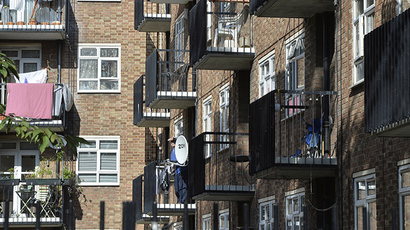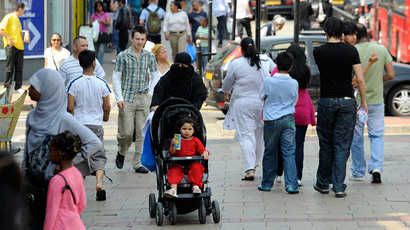Law before equality: Non-UK residents may face ‘discriminatory’ cuts to legal aid

The UK government’s attempt to make residence tests a requirement for those seeking legal aid in Britain has been mitigated by the high court on grounds the proposed policy shift was both illegal and discriminatory.
In a resounding judgement, three British judges unanimously declared the draft legislation unfit for parliamentary enactment. They also upheld an objection that discrimination against non-residents purely for the purpose of sparing state resources was not legitimate logic for introducing this policy.
If enshrined in law, these regulations would have prevented people who were unable to prove they’d been resident in Britain for a year from accessing the state’s legal aid programme.
Proposed by Britain’s Secretary of State for Justice, Chris Grayling, the regulations were set to be implemented in August 2014. The cases’ outcome marks a considerable setback for Grayling, who had begun to introduce widespread reform while the legislation remained in draft format.
The justice secretary’s proposed policy shift would have excluded many individuals with “meritorious cases” from securing vital legal assistance under UK law, according to the Public Law Project (PLP) - a British legal charity that aims to provide those on low incomes with access to “public law remedies”.
On grounds the proposed regulations were being pursued by Grayling unlawfully, the charity launched a judicial review challenge. John Halford, a solicitor from Bindman's law firm, represented the PLP throughout the course of the proceedings.
As was reported in the Guardian, Lord Justice Moses countered the Ministry of Justice’s claim at the close of the proceedings that LASPO – the act under which the proposed policy change would have been implemented – would channel legal aid to the “most serious cases” that have “sufficient priority to justify the use of public funds”.
"No one can pretend that removing legal aid from non-residents is a means of targeting legal aid at those most in need", the judge asserted.
Moses also rejected Grayling's theory that the reforms would garner public confidence when he stated: "In the context of a discriminatory provision relating to legal assistance, invoking public confidence amounts to little more than reliance on public prejudice."
In a recently published briefing paper concerning the government’s proposed amendment of the LASPO Act, UK human rights group Liberty urged the UK Parliament to reject this “discriminatory” policy.
Throughout the document, the human rights organization cited multiple negative implications of the proposed legislation. Of particular note are the legislation’s introduction of “discriminatory tests” that target “foreigners”, its “wholly unjustified” nature, its negative impact on “vulnerable children” and its contravention of the “UK’s obligations under the UN Convention on the Rights of the Child”.
The briefing paper also argued that this proposed legislation would deprive the “mentally and physically incapacitated” of legal assistance in cases “concerning their welfare” and make it virtually impossible for many abuse and crime victims to seek justice and accountability.
The paper was endorsed by multiple UK civil liberties and human rights organizations including Redress, the Prisoners Advice Service, the AIRE Centre, Reprieve and the PLP.
It concluded by emphasizing the enactment of Grayling’s legislation would create a “mockery of a fundamental British value: equality before law.”
Last week, the Commons voted in favor of the residence test by a convincing margin of seventy votes. Members of the house who oppose it will debate the order next week.
Following the high court's judgement that Grayling’s draft legislation was inherently discriminatory, John Halford said: "What we need to see now is the response of the government. We would like to hope that the House of Lords will not endorse this unlawfully drafted legislation."














